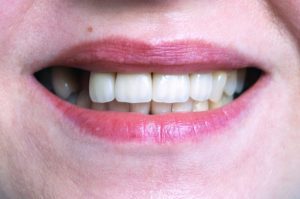Millions of Americans suffer from tooth loss each year, and the complications from missing teeth can be difficult to live with. Your dentist can recommend several types of tooth replacement treatments to restore the function, structure, and appearance of your smile.
Though prosthetic teeth can help you regain oral capabilities and confidence, dentists agree that you should preserve your natural smile as well as you can. Knowing the causes of missing teeth may help you avoid this problem. Read on to learn about three issues that could lead to tooth loss.

3 Reasons You May Lose a Tooth
Advanced Gum Disease
The leading cause of tooth loss in American adults is periodontal disease or gum disease. This infection of the gum tissue causes swelling and bleeding in the gums in its earliest stage, called gingivitis.
As the disease progresses, bacteria reach the tooth root and jawbone, deteriorating these parts of the mouth. This can cause a tooth to fall out of place. A dentist cannot reinstate the tooth because advanced gum disease will have caused immense damage to the mouth.
If caught early, your dentist can get rid of the infection with minimal invasiveness. Advanced gum disease may need more intense treatment to eradicate. A surgeon can remove diseased gum tissue to eliminate the infection and use grafting to reconstruct the gums. This restorative surgery might be necessary for patients seeking dental implants to replace missing teeth.
Severe Tooth Decay
Patients with early stages of tooth decay, such as a cavity, can find treatment with their dentist. They will drill the damaged part of the tooth away and fill the resulting hole with resin to rebuild and protect it. More advanced cases of tooth decay might need a dental crown to cover a large portion of the tooth.
However, teeth that have suffered severe decay might see damage that has deeply infiltrated the tooth. This could result in infections or other major harm to the tooth pulp. In these cases, a dentist might need to extract the tooth if no other restorative option is possible.
A tooth with severe decay might also fall out of its own accord without prompt treatment from a dentist. Your dentist can evaluate your affected tooth and discuss the best way to fix your smile.
Impact Trauma
A tooth could become dislodged from its socket due to impact trauma. A severe blow to the face, chin, or jaw could cause a tooth to fall out. In some instances, your dentist may be able to secure the tooth back into place.
If this injury occurs, collect the tooth and place it gently back into the socket if possible. If not, store the tooth in a container filled with spit so that it is submerged and kept healthy. Call your dentist as soon as you can for an emergency appointment.
Your dentist can discuss restorative dental treatment strategies. If the tooth cannot be placed back in the mouth, your dentist will let you know if they can use a dental implant to replace the missing tooth.
